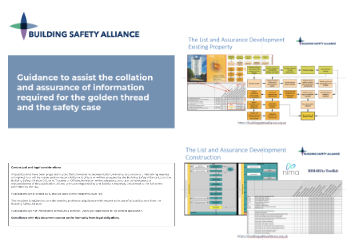Electrotechnical assessment specification for use by certification and registration bodies
In October 2021, the IET published a new Electrotechnical Assessment Specification (EAS).
This replaces the previous EAS (January 2020) and is intended for use by Certification and Registration Bodies undertaking the Assessment of Enterprises carrying out Electrotechnical work. The changes listed on page 2 of the updated EAS are to be implemented as noted.
The Electrotechnical Assessment Specification (EAS) describes:
- The minimum requirements for an enterprise (e.g, contractor) to be recognised by a certification body as competent to undertake electrotechnical work. It includes the minimum technical competence requirements for enterprises to be considered competent to carry out electrical installation work in dwellings in accordance with Part P of the building regulations in England & Wales.
- The competence requirements for registered Qualified Supervisors and of electrical inspectors.
- Requirements for compliance with the Scottish building standards.
- Interpretation of the general requirements for bodies operating product certification (including process and service) schemes to ISO/IEC17065
- Notes of the main amendments to the EAS are listed on Page 2 of the document
The EAS has been prepared by a management committee that includes representatives of the competent person scheme providers, trade associations, the Ministry of Housing, Communities and Local Government, the Welsh Government, Electrical Safety First and the Institution of Engineering and Technology (IET). The IET provides administrative support to the EAS Management Committee and provides for the publication of the standard on its website.
The EAS is provided for download in PDF format free of charge for use by Certification and Registration Bodies and Enterprises carrying out Electrotechnical work and may be quoted in other documents if an attribution to the source is made.
The specification is prepared as part of the support of the electrical industry (and other interested parties) in introducing electrical safety and competence into the Building Regulations.
This article originally appeared as ‘New Electrotechnical Assessment Specification published’ on 6 October 2021 on the ECA website.
--ECA
[edit] Related articles on Designing Buildings
Featured articles and news
International Electrician Day, 10 June 2025
Celebrating the role of electrical engineers from André-Marie Amperè, today and for the future.
New guide for clients launched at Houses of Parliament
'There has never been a more important time for clients to step up and ...ask the right questions'
The impact of recycled slate tiles
Innovation across the decades.
EPC changes for existing buildings
Changes and their context as the new RdSAP methodology comes into use from 15 June.
Skills England publishes Sector skills needs assessments
Priority areas relating to the built environment highlighted and described in brief.
BSRIA HVAC Market Watch - May 2025 Edition
Heat Pump Market Outlook: Policy, Performance & Refrigerant Trends for 2025–2028.
Committing to EDI in construction with CIOB
Built Environment professional bodies deepen commitment to EDI with two new signatories: CIAT and CICES.
Government Grenfell progress report at a glance
Line by line recomendation overview, with links to more details.
An engaging and lively review of his professional life.
Sustainable heating for listed buildings
A problem that needs to be approached intelligently.
50th Golden anniversary ECA Edmundson apprentice award
Deadline for entries has been extended to Friday 27 June, so don't miss out!
CIAT at the London Festival of Architecture
Designing for Everyone: Breaking Barriers in Inclusive Architecture.
Mixed reactions to apprenticeship and skills reform 2025
A 'welcome shift' for some and a 'backwards step' for others.
Licensing construction in the UK
As the latest report and proposal to licence builders reaches Parliament.
Building Safety Alliance golden thread guidance
Extensive excel checklist of information with guidance document freely accessible.
Fair Payment Code and other payment initiatives
For fair and late payments, need to work together to add value.
Pre-planning delivery programmes and delay penalties
Proposed for housebuilders in government reform: Speeding Up Build Out.
High street health: converting a building for healthcare uses
The benefits of health centres acting as new anchor sites in the high street.

























